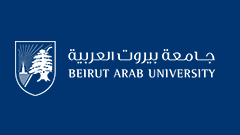English Title
Effect of Carob and Pumpkin Seeds on Spermatogenesis
Keywords
Ceratonia siliqua, Cucurbita pepo;LH; FSH; testosterone; spermatogenesis; fertility
Disciplines
Life Sciences | Medicine and Health Sciences | Molecular Biology
Abstract
Worldwide, a percentage close to 50% of infertility cases is due to male-related problems including spermatogenesis defects, the process that determines sperm cells’ number and thus male fertility. Spermatogenesis is controlled by different hormones including the luteinizing hormone (LH), the follicle stimulation hormone (FSH), and testosterone. LH stimulates the Leydig cells to synthesize testosterone. FSH acts synergistically with testosterone. There is no current efficient treatment for spermatogenesis defects and people are reverting to natural remedies among which are the pumpkin and carob seeds. This study aims to evaluate the effects of pumpkin and carob seeds’ aqueous extracts on spermatogenesis and different sperm parameters in Balb/c mice. Carob seed (2%) and pumpkin seed (8%) aqueous extracts were prepared then administered to six mice groups by gavage over a period of 10, 21 and 35 days. Sperm parameters were determined. The levels of LH, FSH and testosterone were measured by ELISA. The expression levels of PLCz1, Rhox 5 and Ras genes were determined by RT-PCR. Histological studies of the testis seminiferous tubules were performed. Results were statistically analyzed using GraphPad Prism. The results showed that both seed extracts have no effect on the onset of puberty. In mature mice, they caused an increased in LH, FSH and testosterone levels. They also caused an increase in the expression levels of PLCz1, Rhox 5 and Ras genes. The experiment proved the effectiveness of both seeds extracts as male fertility promoters improving spermatogenesis.
Recommended Citation
ElAkhdar, Nour; Bawab, Roweida; and Borjac, Jamilah
(2020)
"EFFECT OF CERATONIA SILIQUA AND CUCURBITA PEPO SEEDS EXTRACTS ON SPERMATOGENESIS IN MALE MICE,"
BAU Journal - Health and Wellbeing: Vol. 3:
Iss.
1, Article 7.
DOI: https://doi.org/10.54729/2789-8288.1045

